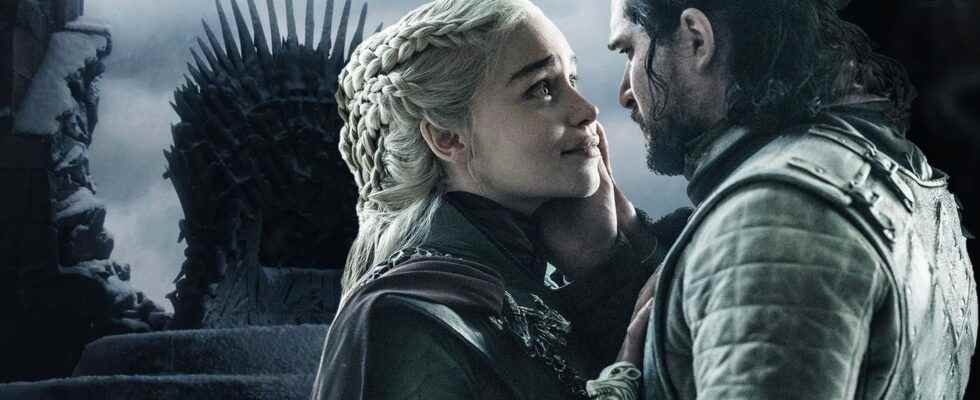Game of Thrones – HBO’s thrilling epic historical fantasy series – finally came to an end after eight seasons, and the finale brought the story full circle in many ways. The show ended with the Iron Throne destroyed, the old system of choosing Kings and Queens eradicated, Bran Stark elected as the new King of Westeros, and Sansa Stark ruling the North as an independent kingdom. Meanwhile, Jon Snow headed beyond the Wall once more with the Wildlings, and Arya Stark sailed west in search of new horizons.
It’s about as happy an ending as fans could have hoped for. There were fantasies about Jon and Daenerys ruling side-by-side as a wise and benevolent king and queen, but that wouldn’t quite have fit with the description of the finale as “bittersweet.” Instead, almost all of the fan-favorite characters made it to the end – including Ser Davos, Bronn, Tyrion, Brienne, and Sam, who made up King Bran’s Small Council.
Showrunners David Benioff and D.B. Weiss faced a considerable challenge in wrapping up Game of Thrones‘ story, from the defeat of the White Walkers to the question of who would rule Westeros in just six episodes. Here’s how they did it, where things lie at the end of the series, and what it all means.
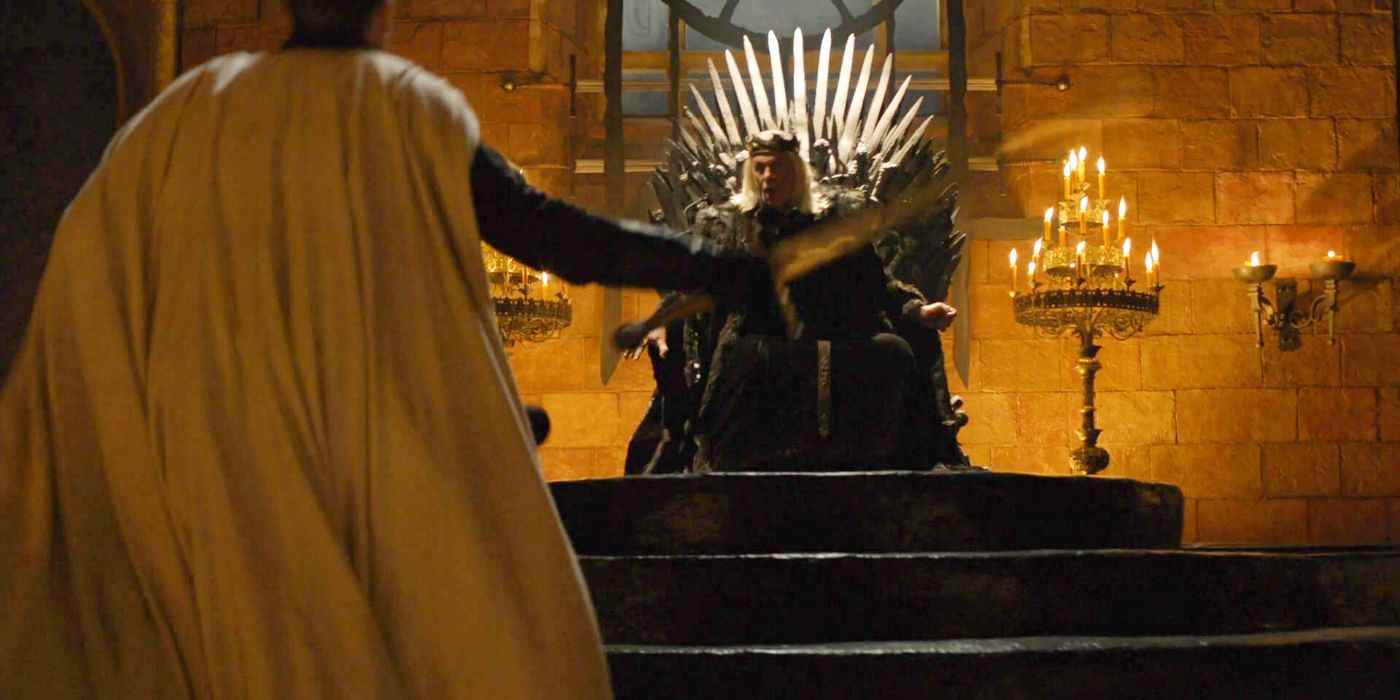
Game of Thrones may have begun seventeen years after Robert’s Rebellion, but the show’s story really began with Jaime earning his title of “Kingslayer” by stabbing Aerys II in the back, after the Mad King gave orders to burn down the city with wildfire. All the events of the series were set in motion by that act – from Robert Baratheon ascending to the Iron Throne, to Daenerys and Viserys’ exile in Essos, and the Lannisters claiming a position of power in King’s Landing.
Daenerys Targaryen’s death brought this story full circle. Like her father, she was betrayed by her Hand – a Lannister, in both cases. Tywin Lannister led his army into King’s Landing, while Tyrion Lannister smuggled his brother into King’s Landing. Also, like her father, Daenerys’ madness was her downfall: her burning of King’s Landing (which even triggered the wildfire caches Aerys had hidden all those years ago) is what ultimately led to people turning away from her. Daenerys was killed by one of her most trusted allies, Jon Snow, who used that trust to get close enough to stab her (like Aerys before her). It was a decision that didn’t necessarily sit right with every fan, especially considering Daenerys’ half-baked journey toward becoming the Mad Queen.
Shortly after Daenerys’ death came a symbolic breaking of the wheel, when Drogon unleashed his grief by melting the Iron Throne into a puddle of molten steel. The throne had been built 300 years earlier by Daenerys’ ancestor, Aegon I, who conquered Westeros with the help of his sister-wives and established himself as the first Targaryen king. It was appropriate that Daenerys’ death should herald the destruction of the Iron Throne since she and Jon were the last of the Targaryen line, and Jon’s punishment for her murder is to join the Night’s Watch again – taking no wife and fathering no children. The reign of the Targaryens was truly over.
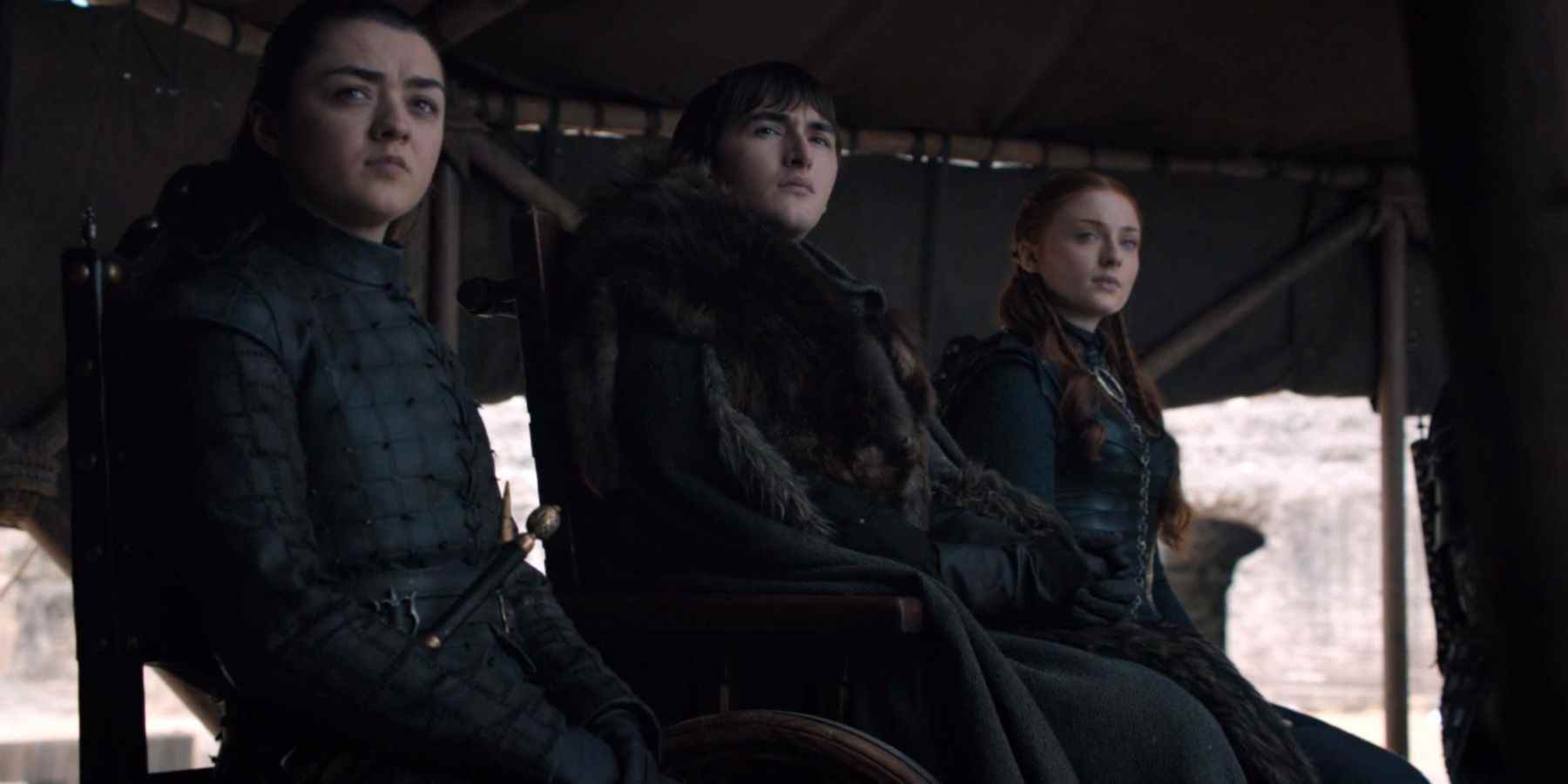
Many assumed that if Jon were to kill Daenerys, he would be crowned King of Westeros. Instead, he was taken prisoner by the Unsullied, and it was left to the lords and ladies of the Seven Kingdoms to choose a new ruler – no longer beholden to any rules of bloodline or inheritance. Tyrion suggested that “Bran the Broken” would be the best choice since his story of being crippled as a child, then going on a great journey north of the Wall and becoming the Three-Eyed Raven was powerful enough to make people believe in him as a ruler. Moreover, as the Three-Eyed Raven, Bran is the keeper of all of Westeros’ stories and memories. Though Bran didn’t particularly want to be king, he had already seen that it was his destiny, and the assembled council elected Bran Stark as the new ruler of the Six Kingdoms.
Only six, rather than seven, because Sansa’s condition for giving Bran her vote was that the North would remain independent – as its people had already decided back when they chose Robb Stark to be the King in the North, and later Jon Snow to succeed him. Game of Thrones ended with Sansa being hailed as the Queen in the North – something that was foreshadowed when Daenerys’ attack on King’s Landing split the map in the Red Keep down the middle, dividing the North from the southern kingdoms.
As with Daenerys’ death, this ending brought the story full circle. Game of Thrones season 1 was about the fall of the Stark family: Bran being thrown out of a window, Ned being executed, the Stark household in King’s Landing slaughtered, Sansa taken prisoner by a monster, and Arya forced to flee in the guise of a peasant boy called Arry. The Starks had suffered tragedy after tragedy, losing family members and at one point having their ancestral home burned. Fans had been waiting a long time to see them finally get back on top, so having a Stark ruling in both the North and the Six Kingdoms felt like just desserts.

The final book in George R.R. Martin’s A Song of Ice and Fire series will be titled A Dream of Spring, and fans saw that dream in the form of Game of Thrones‘ green plant protruding from the snow as Jon heads north with the Wildlings. Much of Game of Thrones had been building up to the worst and longest winter in a while since the characters had previously been enjoying a seven-year summer, and the seasons tend to balance themselves out. However, it seemed as though the defeat of the Night King and the White Walkers may have given Westeros its shortest winter yet.
Ever since the long-standing “R+L=J” fan theory was confirmed, and Jon was revealed to be the son of Rhaegar Targaryen and Lyanna Stark, it was speculated that he would end up on the Iron Throne – since, after all, he had a stronger claim to it than Daenerys. Some fans argued that the reveal of Jon’s heritage was pointless since it never amounted to anything, and he was banished from Westeros after killing Daenerys; he would never become king and only a handful of people knew the truth about him by the end of Game of Thrones. However, the discovery that Daenerys had a rival for the throne is ultimately part of what tipped her over into madness, leading Jon to eventually kill her. Moreover, Westeros finally rejecting the system of kings and queens inheriting the throne wouldn’t carry as much weight if there wasn’t a “rightful” king who didn’t get to claim his birthright.
Of course, Jon never wanted to become king anyway, and his return to the Night’s Watch also brought his story full circle – and not just because Jon venturing beyond the Wall mirrors the very first scene of the show. In Game of Thrones season 1, all Jon wanted to do was take the black and man the Wall with his fellow brothers of the Night’s Watch. During his time with the Night’s Watch, he realized that the Wildlings weren’t the real enemy, and eventually, both the Night’s Watch and the Wall itself crumbled. However, as Tormund observed, Jon has the North in him, and there’s a definite sense as he heads into the woods beyond the Wall that he’s where he’s supposed to be after feeling like a bit of an outsider for so long. Despite leaving the remaining Starks behind, Jon Snow finally seemed like he was at peace. Plus, staying behind in Westeros would have reminded him of all the bad — including his decision to kill Daenerys.
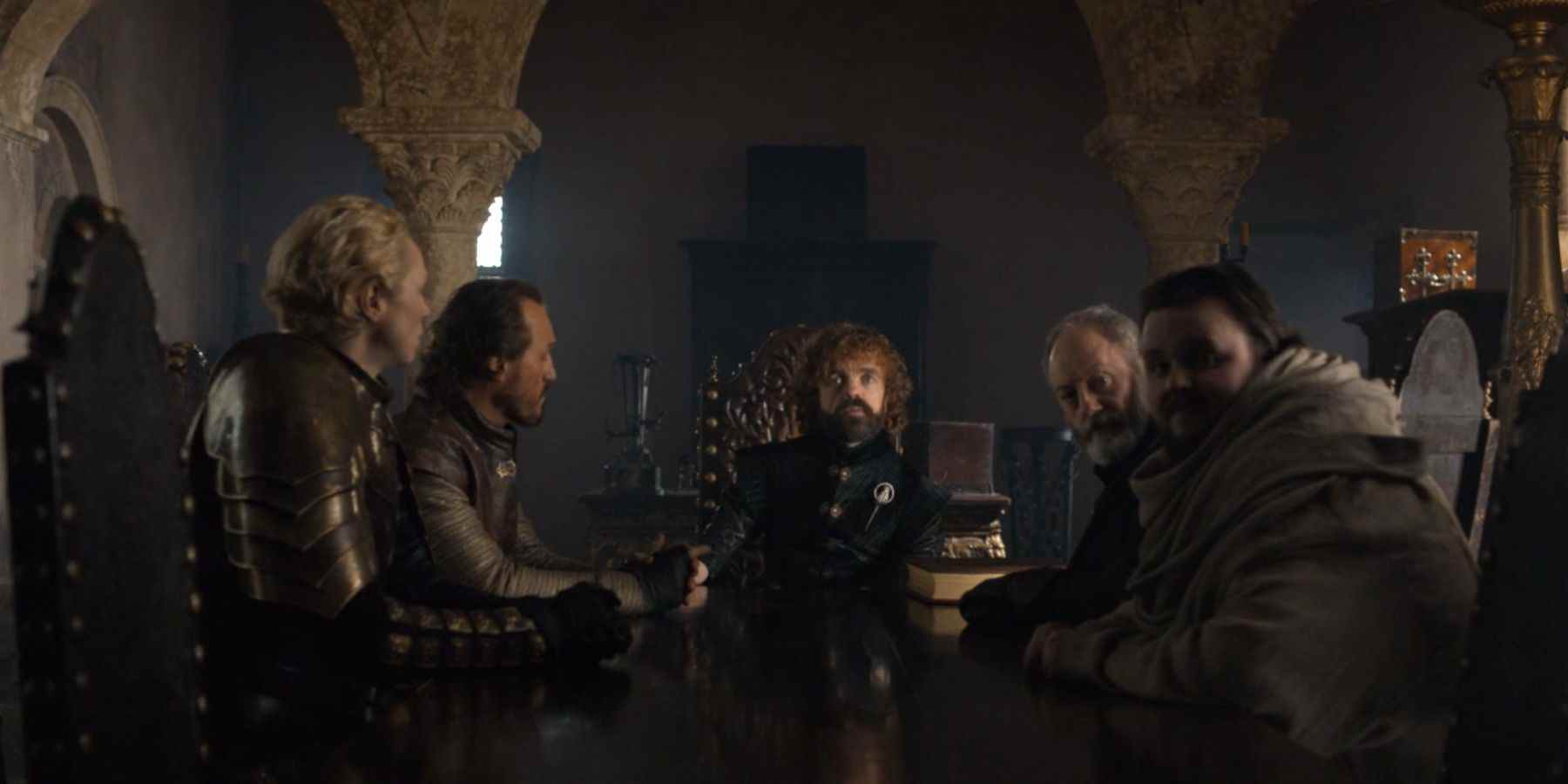
When Game of Thrones began, the Lannisters were the real power players in King’s Landing, with King Robert Baratheon observing angrily at one point that he was surrounded by them no matter where he turned. The crown owed a massive debt to Casterly Rock, Queen Cersei had birthed a trio of Lannister children with a false claim to the Baratheon throne, and Jaime Lannister was a member of the Kingsguard. Even King Robert’s squire was a Lannister – a fact that would ultimately lead to his death, as Lancel Lannister plied the king with too much wine while on a boar hunt.
The Game of Thrones series finale started with Tyrion seeking out his siblings in the ruined Red Keep and finding them dead in each other’s arms – his escape plan for them had failed. This left Tyrion as the last of Tywin Lannister’s children and the Lord of Casterly Rock, and he is once again appointed to serve as Hand of the King (this time, it was Bran). While Grey Worm objected to this, saying that Tyrion needs to be punished instead, Bran argued that being Hand of the King is his punishment, as he will have to work to undo the damage done during his previous tenure as Hand of the King (and later, Hand of the Queen). Ultimately, Tyrion’s hands weren’t clean despite being the better of the three Lannister siblings. His actions also led to much discord, and he had to make up for that in his own way.
With Tyrion at its head, King Bran’s small council was blessedly free of backstabbers like Littlefinger and Pycelle. The plain-talking but reliable Bronn became Master of Coin, Ser Davos was made Master of Ships, Sam Tarly was Grand Maester, and Brienne got the role of Commander of the Kingsguard (a role she rightly deserves after serving with so much loyalty and dignity over the course of Game of Thrones). While these characters certainly had their flaws, this was the best small council we’ve seen assembled so far – although it was missing a Master of Whisperers, a Master of Laws, and a Master of War. Of course, Bran probably didn’t need a Master of Whisperers, and with any luck, he won’t need a Master of War either.
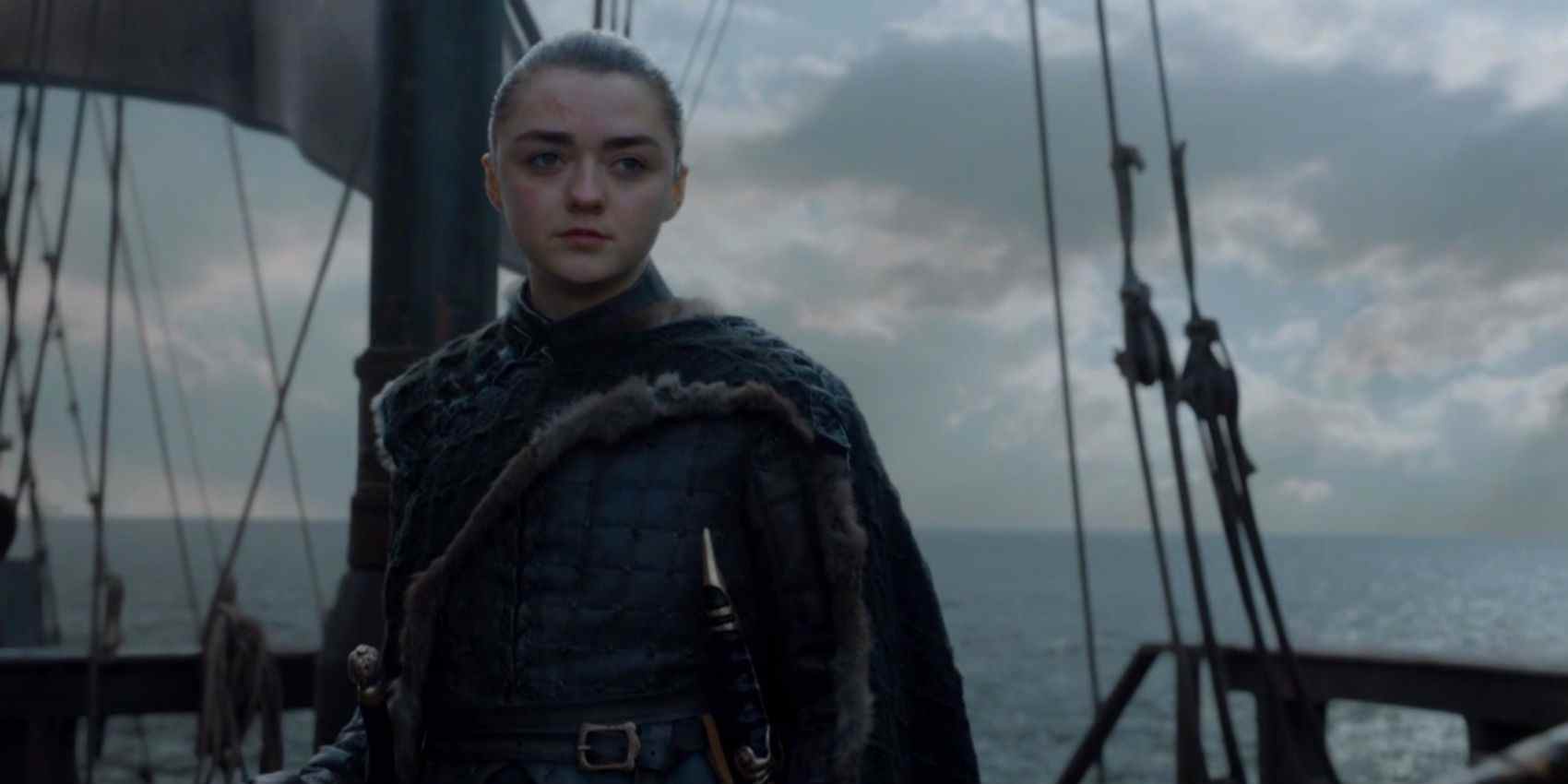
When she left Winterfell with Sandor Clegane, Arya said that she had no intention of returning home from King’s Landing. It was not the first time that Arya has rejected safety in favor of adventure; when Brienne tried to “rescue” her early on in Game of Thrones, Arya spurned the offer and instead ended up heading to Essos to study with the Faceless Men. Arya had changed more than any of the Stark children except perhaps Bran, and now that she was a lethal, face-changing assassin who killed the Night King, stabbing him with a swift trick of the hand, it was hard to imagine her ever going back to a simple life as a Lady of Winterfell; Arya even rejected Gendry’s proposal to turn her into such, though she rejected it and claimed she was no lady.
The fact that Arya was last seen sailing into the sunset (literally – the sea she was sailing on is called the Sunset Sea) actually had massive implications since there may actually be other Starks waiting for her when she hit land. King Brandon the Shipwright, an ancient ancestor of the Stark family who lived thousands of years before the start of Game of Thrones‘ story (according to the books), once sailed west across the Sunset Sea and was never seen again. While it was possible that his voyage was ill-fated, it was also possible that Arya would reach land and find distant relatives waiting for her there. More than that, her journey – like Jon’s – represented hope for the future.
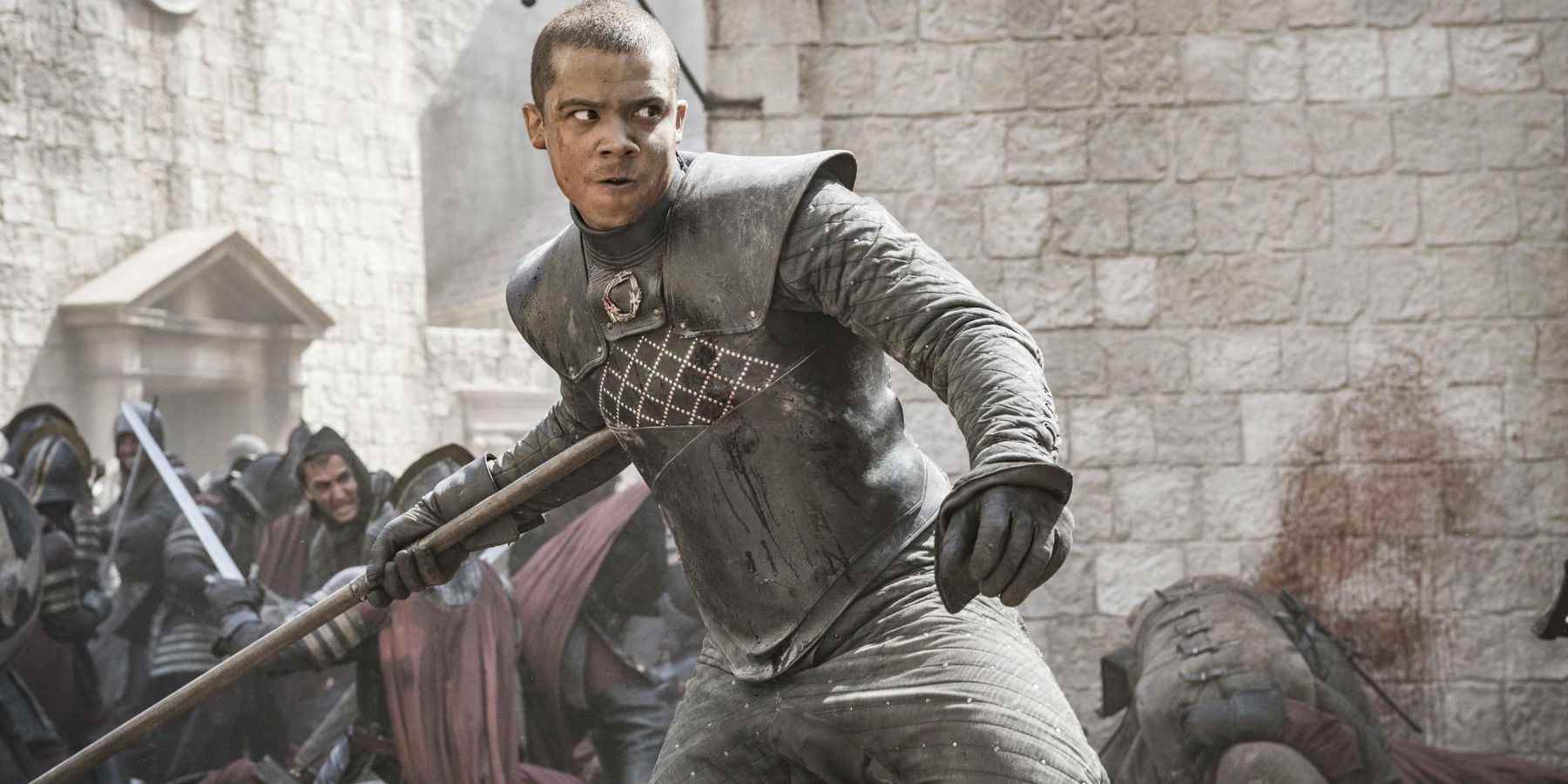
The Unsullied had come a long way from the slave soldiers that Daenerys liberated in Game of Thrones season 2 and remained fiercely loyal to their Queen, but before the Great Battle of Winterfell, Grey Worm and Missandei made plans for a life after war. After he had helped Daenerys win her throne, Grey Worm wanted to travel the world and asked Missandei if there was anywhere she’d like to go. She replied that she would like to see the beaches of Naath again, the island where she was born, and Grey Worm decided that he would go with her.
Although Missandei was executed by Cersei, Grey Worm ended the series by deciding to fulfill his plans with Missandei, telling the Unsullied that they’ll travel to Naath. It was possible that Grey Worm would continue Daenerys’ legacy and protect Naath from further raids by slavers so that no more little girls would have to live the life that Missandei did. Or perhaps he and the Unsullied will finally lay down their spears and live simple lives as freed men.
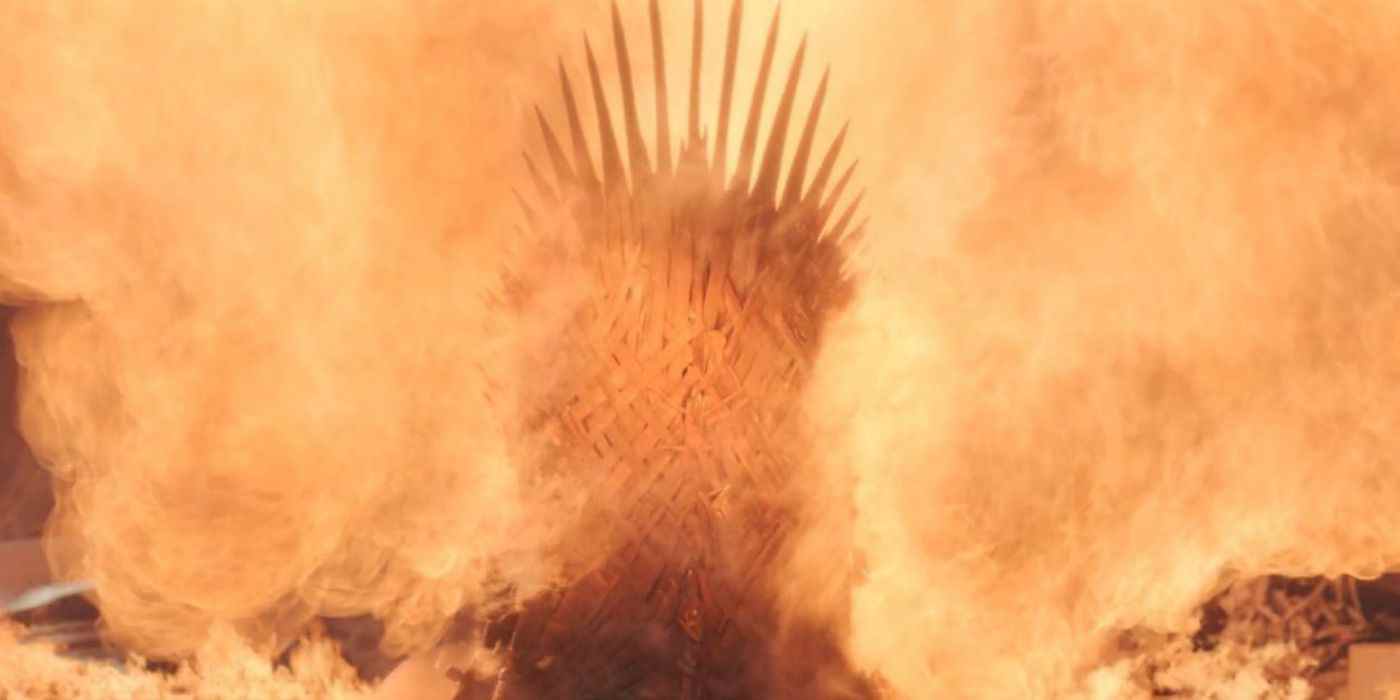
One thing that Game of Thrones cleverly achieved was getting audiences invested in the idea of there being a “rightful” king or queen by birthright while also making it clear that this birthright claim was the source of all of Westeros’ misery. Ned Stark became fixated on the fact that Cersei’s children were not rightful heirs, and, like Jon Arryn, he was killed to protect this secret. All of Gendry’s siblings were murdered to eradicate their claim to the throne. Viserys was fixated on getting his golden crown, to the point that he told Daenerys he’d let every Dothraki in Drogo’s khal (and their horses) rape her if that was what it took to get him on the Iron Throne, and yet Viserys’ “golden crown” was what killed him.
Furthermore, it was Daenerys’ belief in her claim to the throne of Westeros and her destiny to “liberate” its people that took her away from Essos, where she had a claim to leadership that was earned rather than inherited. Though Tyrion called out Daenerys’ slaughter of “evil men” as warning signs on the path to her becoming the Mad Queen, Daenerys was beloved by the people of Slaver’s Bay, and it was only upon arriving in Westeros and finding it cold and hostile to her that she really began her downward spiral into madness. Strangely, even Drogon seemed to realize this, aiming his fire at the Iron Throne rather than Jon as though he recognized the corrupting influence of its power.
While held prisoner by Daenerys, Tyrion lamented that Varys had been right, which goes further than simply Varys’ realization that Daenerys would be a dangerous queen. Varys once told Tyrion that “power resides where men believe it resides, no more and no less.” The Iron Throne was ultimately just a metal chair, and Targaryen and Baratheon blood is just blood; these things only had power because people believed that they did. When the assembled lords and ladies of Westeros are uncertain of who should be king, Tyrion pointed out that they are now the most powerful people in Westeros, and therefore, they can “choose one.” Power resided where they decided it will.
Game of Thrones‘ series finale also made an interesting point about history and those who wrote it – which again returned to something that Varys once said to Tyrion. After Tyrion’s quick thinking and strategizing saved King’s Landing during the Battle of the Blackwater, and he was badly injured for his efforts, Varys explicitly told him that, “The history books will not write about you.” Sure enough, when Sam presented the finished tome, A Song of Ice and Fire, and Tyrion eagerly asked how he was presented in the account of the wars following Robert Baratheon’s reign, Sam admitted that Tyrion wasn’t even mentioned.
Aside from being amusing (and fitting, given how Tyrion has spent his whole life being unappreciated), this also crystallized a theme that had been presented throughout the past eight seasons of Game of Thrones: that history was more about telling stories than telling the truth. After all, many fans had argued that Arya’s story was far more interesting than Bran’s, but she was likely to be forgotten by the history books while he reigned as “Bran the Broken.” Jaime lamented that he was given the black mark of “Kingslayer” and considered a coward and a traitor who stabbed his own king in the back, yet the history books didn’t record the fact that he killed Aerys to stop King’s Landing from being burned. Then again, perhaps the history books will remember that fact now that Brienne has a hand in writing them.
Fans will undoubtedly be dissecting what Game of Thrones‘ ending means for many years to come, and there are still Martin’s books to add extra context and story to the final stage of the journey (assuming they ever get published). For many of the characters, fans came to know and love over the years; that is just as much a new beginning as it is an ending.
